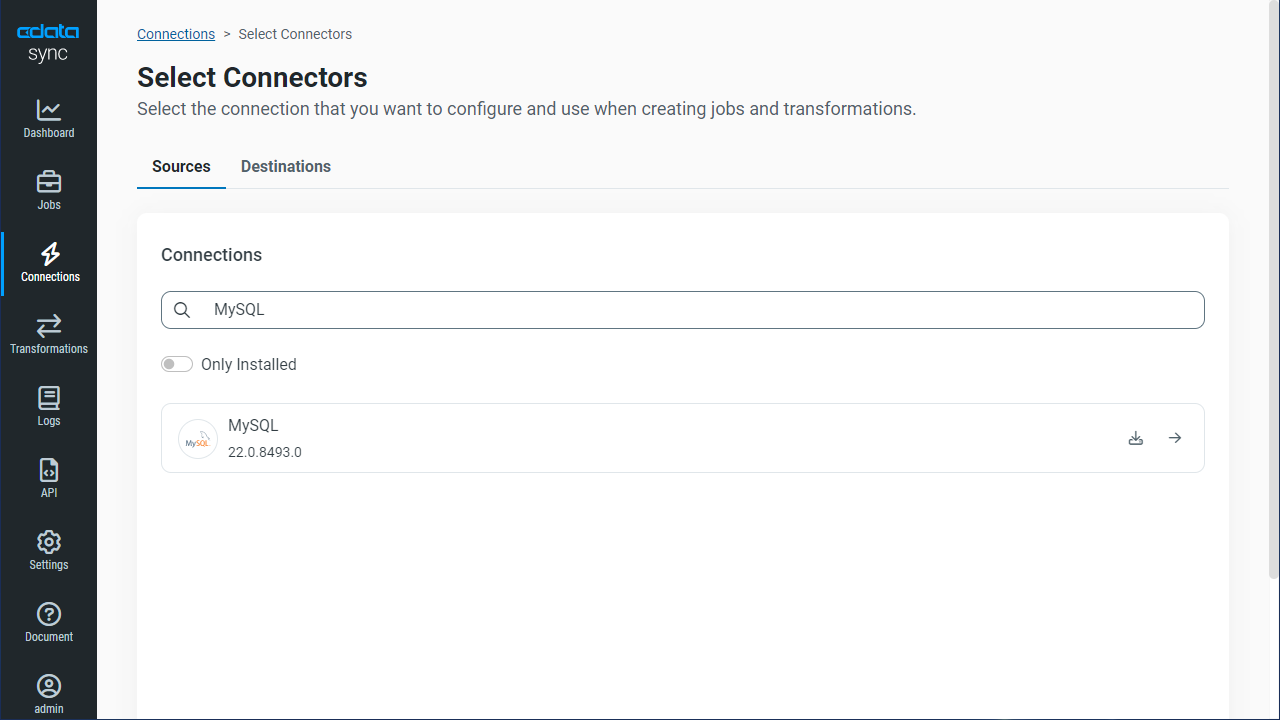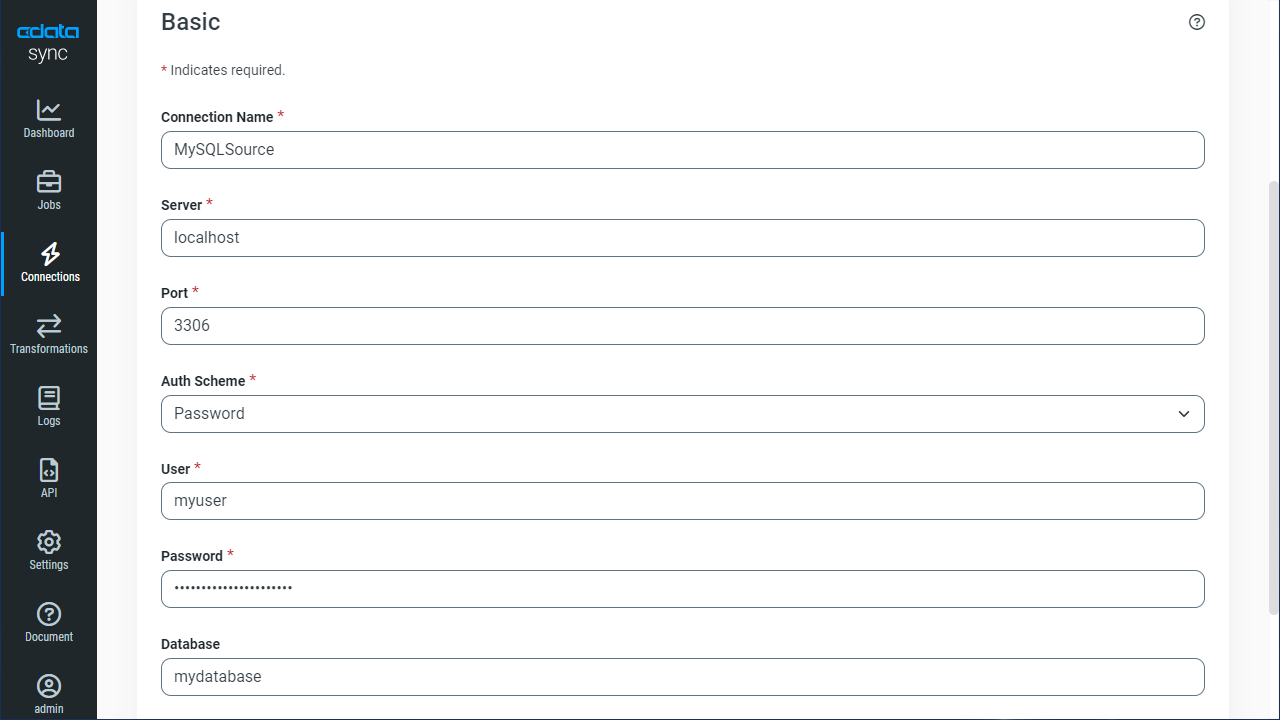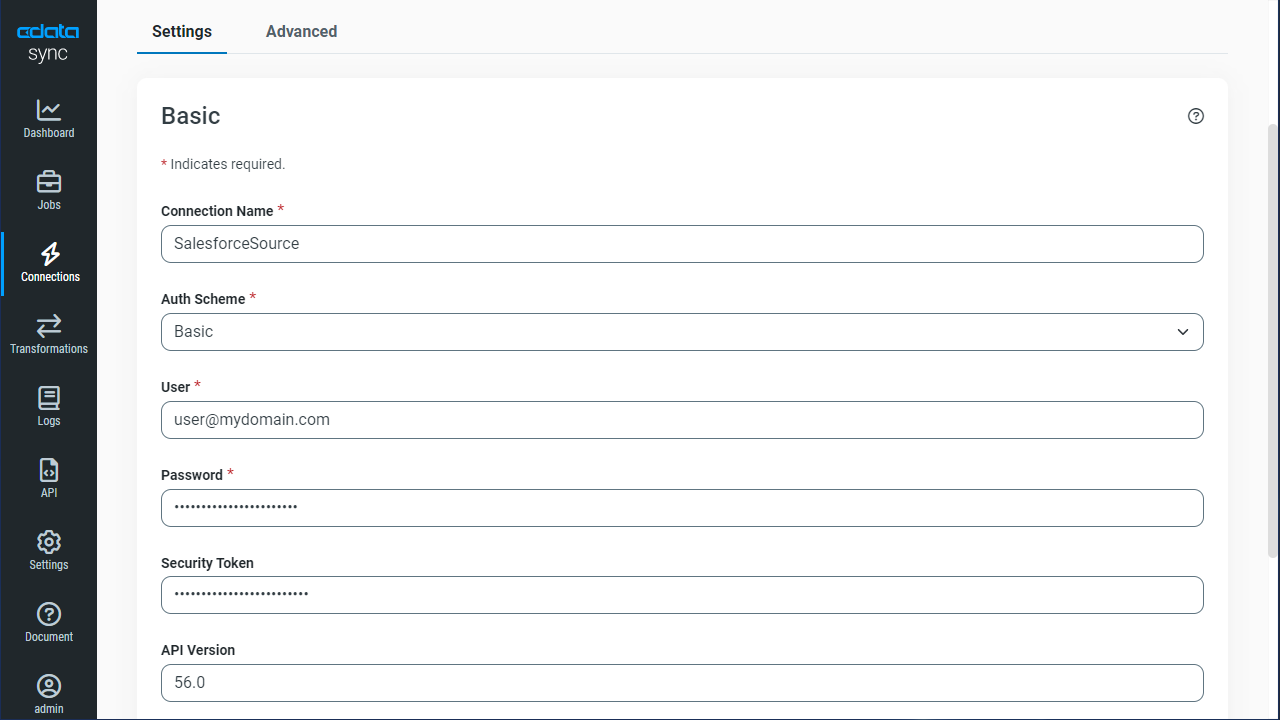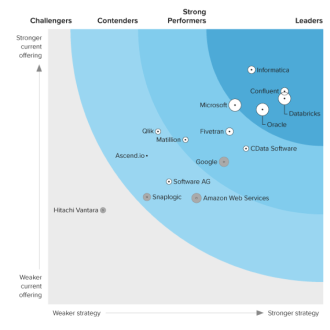Discover how a bimodal integration strategy can address the major data management challenges facing your organization today.
Get the Report →Automated Continuous FHIR Replication to MySQL
Use CData Sync for automated, continuous, customizable FHIR replication to MySQL.
Always-on applications rely on automatic failover capabilities and real-time data access. CData Sync integrates live FHIR data into your MySQL instance, allowing you to consolidate all of your data into a single location for archiving, reporting, analytics, machine learning, artificial intelligence and more.
Configure MySQL as a Replication Destination
Using CData Sync, you can replicate FHIR data to MySQL. To add a replication destination, navigate to the Connections tab.
- Click Add Connection.
- Select MySQL as a destination.
![Configure a Destination connection to MySQL.]()
- Enter the necessary connection properties. To connect to MySQL, set the following:
- Server: The IP address or domain name of the server you want to connect to.
- Port: The port where the server is running.
- User: The username of a user with read/write access to the database.
- Password: The password of a user with read/write access to the database.
- Database: The name of the database.
- Click Test Connection to ensure that the connection is configured properly.
![Configure a Destination connection.]()
- Click Save Changes.
Configure the FHIR Connection
You can configure a connection to FHIR from the Connections tab. To add a connection to your FHIR account, navigate to the Connections tab.
- Click Add Connection.
- Select a source (FHIR).
- Configure the connection properties.
Set URL to the Service Base URL of the FHIR server. This is the address where the resources are defined in the FHIR server you would like to connect to. Set ConnectionType to a supported connection type. Set ContentType to the format of your documents. Set AuthScheme based on the authentication requirements for your FHIR server.
Generic, Azure-based, AWS-based, and Google-based FHIR server implementations are supported.
Sample Service Base URLs
- Generic: http://my_fhir_server/r4b/
- Azure: https://MY_AZURE_FHIR.azurehealthcareapis.com/
- AWS: https://healthlake.REGION.amazonaws.com/datastore/DATASTORE_ID/r4/
- Google: https://healthcare.googleapis.com/v1/projects/PROJECT_ID/locations/LOCATION/datasets/DATASET_ID/fhirStores/FHIR_STORE_ID/fhir/
Generic FHIR Instances
The product supports connections to custom instances of FHIR. Authentication to custom FHIR servers is handled via OAuth (read more about OAuth in the Help documentation. Before you can connect to custom FHIR instances, you must set ConnectionType to Generic.
![Configure a Source connection (Salesforce is shown).]()
- Click Connect to ensure that the connection is configured properly.
- Click Save Changes.
Configure Replication Queries
CData Sync enables you to control replication with a point-and-click interface and with SQL queries. For each replication you wish to configure, navigate to the Jobs tab and click Add Job. Select the Source and Destination for your replication.
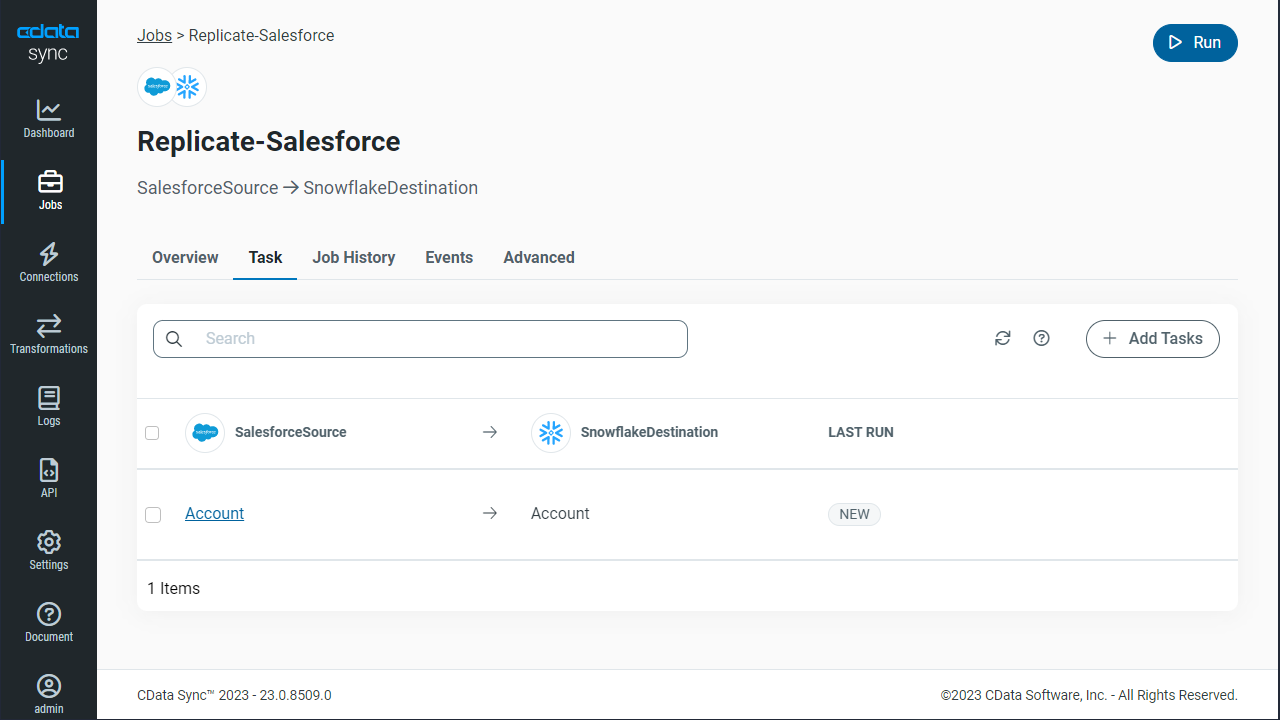
Replicate Entire Tables
To replicate an entire table, click Add Tables in the Tables section, choose the table(s) you wish to replicate, and click Add Selected Tables.
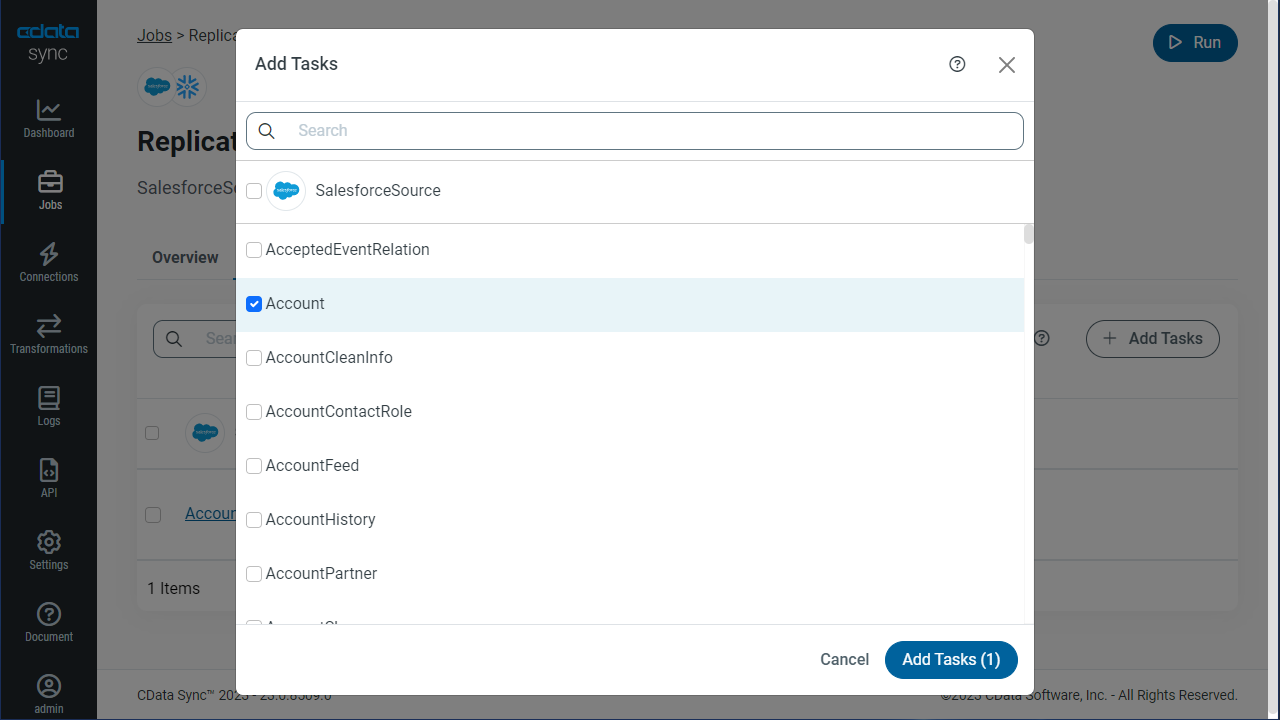
Customize Your Replication
You can use the Columns and Query tabs of a task to customize your replication. The Columns tab allows you to specify which columns to replicate, rename the columns at the destination, and even perform operations on the source data before replicating. The Query tab allows you to add filters, grouping, and sorting to the replication.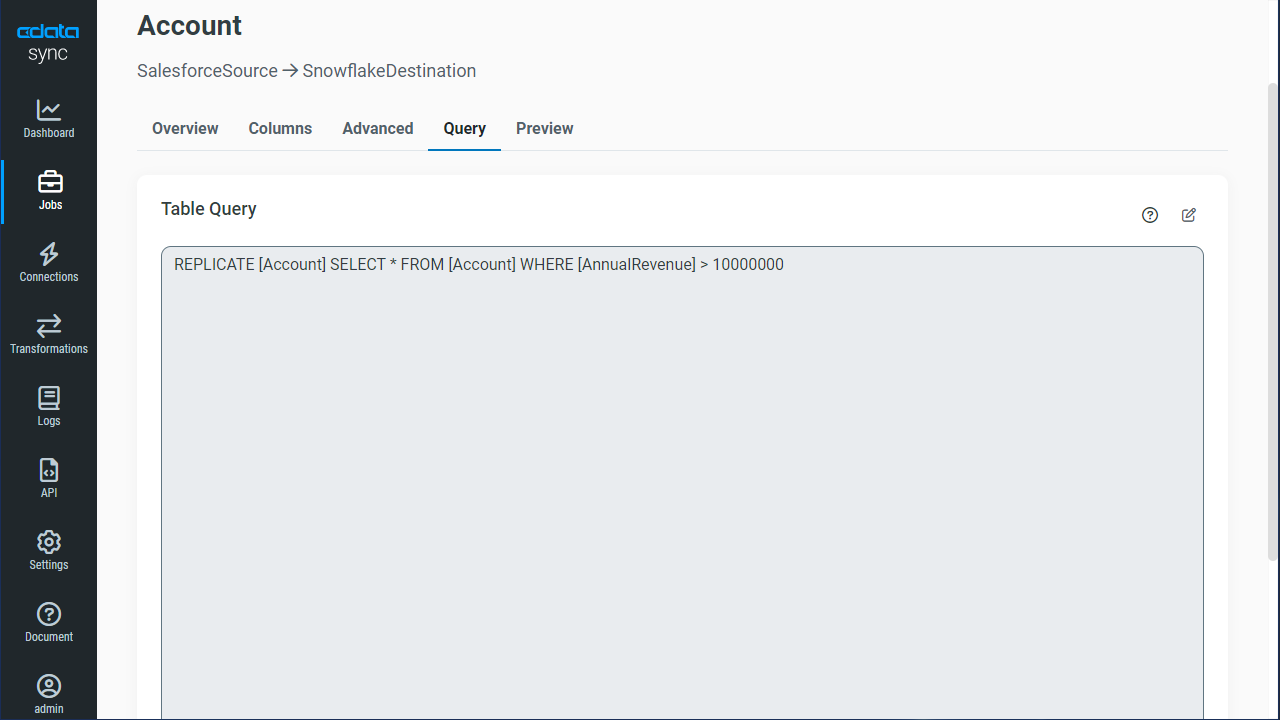
Schedule Your Replication
In the Schedule section, you can schedule a job to run automatically, configuring the job to run after specified intervals ranging from once every 10 minutes to once every month.
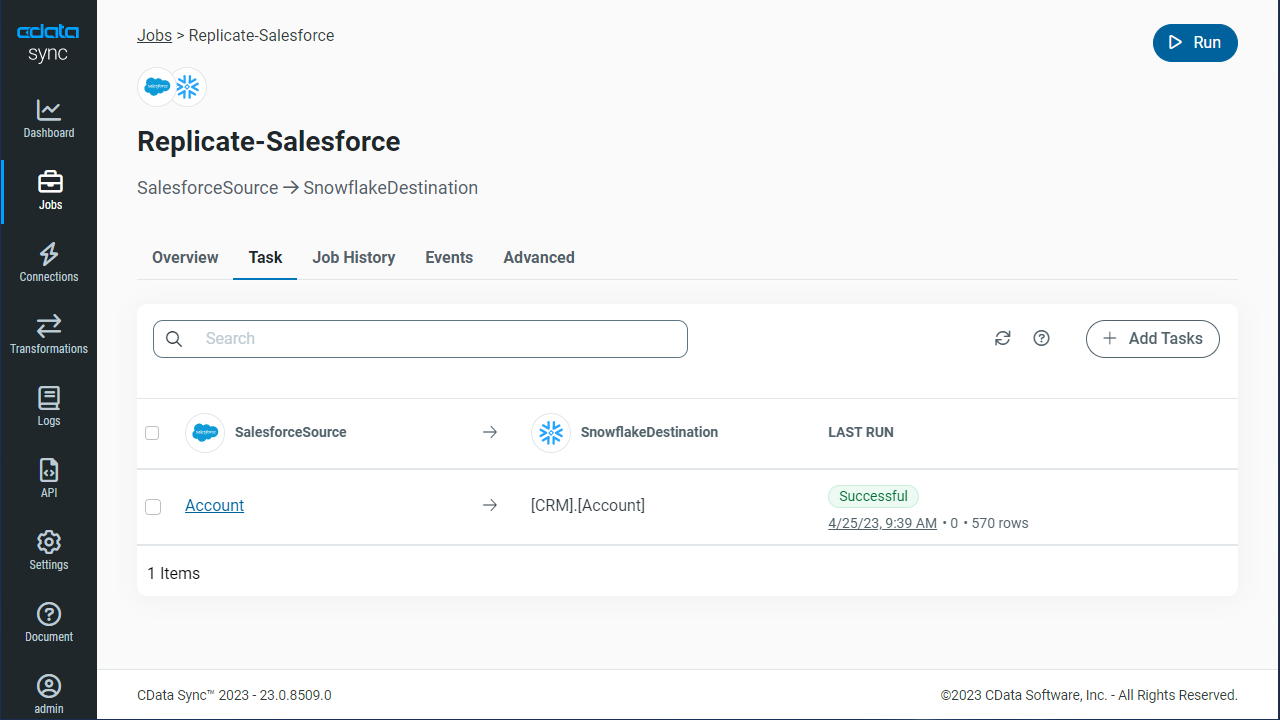
Once you have configured the replication job, click Save Changes. You can configure any number of jobs to manage the replication of your FHIR data to MySQL.






